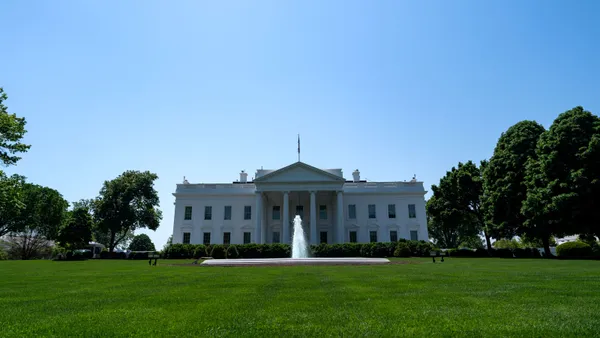Anti-DEI organization American Alliance for Equal Rights has yet to prove that a mandate for certain Illinois employers to post demographic data online violates the First and 14th Amendment, a federal court judge ruled Aug. 20, partly trimming the organization’s lawsuit. However, AAER did sufficiently show members would be harmed by having to ask “intrusive questions” of their employees, the judge said, allowing part of its lawsuit to move forward.
The ruling in American Alliance for Equal Rights v. Raoul, et. al. is in response to SB2930, an unprecedented Illinois law that requires not-for-profit corporations registered in Illinois that report grants of more than $1 million to publicly post demographic information — including about race, sexual orientation and gender identity — about their directors and officers. The law took effect in January.
The American Alliance named its defendants as Kwame Raoul, attorney general of Illinois; James Bennett, director of the Illinois Department of Human Rights; Alexi Giannoulias, secretary of state of Illinois; J.B. Pritzker, governor of Illinois; and the state itself.
The American Alliance filed an initial complaint on Jan. 21 in the U.S. District Court for the Northern District of Illinois, on behalf of two members of its organization — anonymously called “Member A” and “Member B” — who both allegedly meet this criteria.
“This statute’s purpose is to force nonprofits to classify individuals by race and sex and to compel them to hire people by race and sex,” Edward Blum, the alliance’s president, said in a statement on Jan. 21. “It is clearly unfair and illegal.”
In deciding whether to dismiss the American Alliance’s claims, the court considered the potential harm caused by data collection and subsequent online publication.
The court found that the American Alliance’s Fourteenth Amendment claim that the mandated publication of data would force employers to hire based on race due to “public shaming” was “too speculative.”
The American Alliance did sufficiently demonstrate a First Amendment claim of imminent harm, however, based on members being required to ask directors and officers questions about sensitive demographic issues, the court said.
Because the American Alliance did not present a First Amendment claim related to collection — the element for which the court found standing — the court rejected the Alliance’s motion for preliminary injunction, but opened the door for an amended complaint.
The U.S. government moved to intervene in the lawsuit on March 4, alleging a violation of the Equal Protection Clause of the Fourteenth amendment; the attorney general deemed this case of “general public importance.” The court dismissed the government’s complaint as well as its motion for preliminary injunction.
The judge extended the American Alliance and the federal government 14 days from Aug. 20 to respond.
The American Alliance has pursued similar litigation before, suing the American Bar Association for alleged discrimination in its scholarship program and the University of Texas-Austin’s Black epiSTEMologies program.
On Aug. 21, the American Alliance filed an appeal with the 7th U.S. Circuit Court of Appeals regarding the judge’s dismissal of multiple claims.















